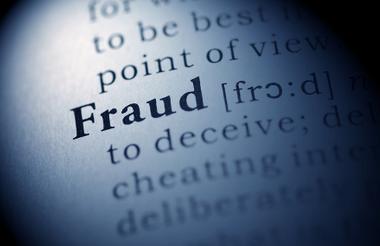The World Bank estimates that the Covid-19 pandemic has pushed millions more people into extreme poverty, leading to increasing demands for support from donors and their partners. In this context it is even more critical to safeguard funds from misuse. The need to urgently channel funding to tackle the impacts of the pandemic, coupled with the negative economic impact on both the public and private sectors creates a potential breeding ground for fraud and corruption.
Economic downturns and crisis situations provide the ideal environment for fraud to take place, as financial criminals and opportunists take advantage of times of uncertainty. Donors and their implementing partners should be aware of a heightened level of fraud risk resulting from the Covid-19 pandemic and consider how it may impact their programmes.
Areas of heightened fraud risk for donors and their partners, include:
Challenges in providing monitoring and oversight:
With travel restrictions and stay-at-home orders in place, donors may be unable to monitor partner delivery, carry out spot checks and review financial information. This may lead to fraud red flags being missed and provide opportunities for individuals to take advantage.
Conducting due diligence:
Where physical visits to potential partners and suppliers are no longer feasible, donors and partners may rely on remote solutions, such as online interviews and scanned documentation. Verifying supplier and partner details is therefore more challenging, creating greater opportunity for abuse and manipulation.
Urgent reprogramming related to Covid-19:
The need to respond quickly creates pressure to override existing processes and controls. Non-adherence to procurement procedures presents an opportunity for fraud and corruption, as favoured suppliers may be selected without due process. New suppliers or partners may be required at short notice, leaving insufficient time to conduct adequate due diligence.
Adapted delivery mechanisms:
Covid-19 restrictions may necessitate changes in delivery methods, for example a different cash transfer mechanism, or delivering activities from a different location. Such changes present an additional fraud risk and should be risk assessed in advance.
Retaining effective segregation of duties:
The shift to remote working may weaken internal controls, if processes change or are circumvented. Specifically, without adequate segregation of duties, the risk of fraud increases. Cash and assets, as well as post and deliveries, left on site may be more vulnerable to misappropriation.
Cyber-enabled fraud:
Cyber criminals have used the pandemic to repurpose existing fraud schemes – such as phishing emails - with a Covid-related dimension. Donors and partners may be more susceptible to mandate and invoice fraud (fraudster requests a change to payment details of a genuine supplier) as staff members are working outside their usual environment.
Prevention is better than cure
However, donors and partners can implement measures to help protect their organisations from the risks of fraud.
Raising Awareness
Implement a fraud awareness programme for staff and implementing partners, including identifying indicators that fraud may be occurring.
Clear reporting channels
As part of raising awareness, ensure that reporting channels are in place and are clearly communicated to all staff and partners.
Build partner capacity
Work with partners to ensure they are aware of their reporting obligations, know how to identify fraud-related issues and how to protect their organisations from fraud and corruption. Building financial management capacity and improving the internal control environment should also form part of this approach.
Fraud Management Framework
Put in place a fraud management framework, including a Fraud Management Strategy, a Fraud Response Plan, whistle-blowing/reporting hotline and Fraud Risk Assessment process. This framework will put your organisation in the strongest position to respond to a fraud. The framework should include a mechanism for using lessons learned to mitigate against recurrence.
Document changes to procedures
Where processes and procedures have changed, ensure the changes are documented in policies and guidance and establish a review process to keep them up-to-date. Gaps and weaknesses in policies and procedures can provide opportunities for fraud to occur.
Laura Hough is a Counter Fraud and Anti-Corruption Specialist from BDO’s dedicated international institutions & donor department. Each year this department delivers over 4,000 engagements for donors and recipients of donor funds with fieldwork undertaken in more than 170 countries/territories. For further information click here.








